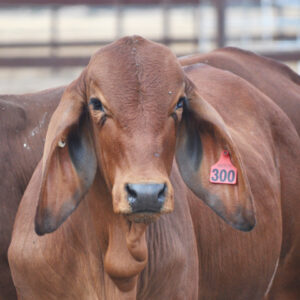*Featured image is a young weaner bull by Elmo Picasso who has tested homozygous polled (PP)
In 2017 we made the commitment to breed a 100% polled herd, in response to customer demand. The stud breeders and commercial producers we work with want polled animals because they are easier to handle and are less likely to get injured or injure each other or stock handlers. Running polled cattle also reduces labour costs and animal welfare concerns associated with dehorning.
We’ve made considerable progress towards our ambitious target and while we’re not quite at 100% yet, we’re well on the way. Here I outline our journey towards 100% polled herd and introduce you to our latest polled bull.
In October 2018, we mated Palmal Pattenson 8106 (P) and Elmo Picasso 1023/7 (PP) to produce our 2019 calves. As a polled/scurred sire, most of Pattenson’s progeny are also polled/scurred, although he has bred four homozygous polled (PP) progeny when mated to polled females. His progeny are very quiet – reflecting his flight time EBVs – and also show strong bone and high growth. Picasso, being homozygous polled, has significantly increased our polled percentage when he is mated with horned females.
All 60 of the calves born in 2019 have been tested using the STANDARD BUNDLE (GGP TROPBEEF) genomic package that includes GGP Tropbeef Profile Parentage, Horn/Poll and Pompes E7 and genomic EBV’s. Out of the 75% of them that are polled/scurred (PS), an encouraging 22% are homozygous polled (PP). We know that the more polled animals we breed, the higher number of homozygous polled animals we will have in our herd. This enables us to meet customer demand for a PP animal that displays all the other important traits.
We are so pleased with his progeny that we gave Picasso the entire registered herd to himself in October 2019.
It is exciting to see Picasso’s progeny recorded in the Repronomics project, where they will be measured for birth weight, growth and ultrasound carcase traits. Together with real-time ultrasound scanning of the animals’ reproductive systems, this will provide data on hard-to-measure female reproduction traits such as heifer age at puberty and lactation anoestrous interval. The data will significantly increase the accuracy of Picasso’s EBVs and, in turn, improve the predictability of genetic traits displayed in his progeny.
2020 is a landmark year for Rockley as for the first time ever we join a strong team of 20 sires in our stud and commercial herd that are all polled. This will radically increase our percentage of polled progeny born in 2021. Most importantly, this gives our clients the choice of more polled herd bulls in the future that align with our 7 elite breeding attributes.
In my 2017 blog – Why We’re Polled Enthusiasts at Rockley – I stressed that our transition to 100% polled would take time. And as we prefer not to dismiss a good horned bull that can deliver genetic gain, horned animals still have a place in our program. Our aim is to extend our red brahman genetic base by using selected horned bulls over tested homozygous polled donors in IVF programs. The reason being that when we use a horned bull over a PP donor, we can be assured that a very high percentage – if not all – the progeny will be polled.
New homozygous polled sire

Muan A Trimble (PP)
We purchased Muan A Trimble (PP) at the 2020 Big Country Sale for $32,500. He was a clean polled at the sale, but his polled test had not been confirmed. We’ve since learned that he’s homozygous polled (PP).
Trimble is a real meat machine with strong bone. At the time of sale, he was a milk tooth, weighed 880kg and had a scrotal measurement of 40cm. He is a medium framed bull and an obvious good doer with excellent muscle expression, strong carcass qualities and a hindquarter that is big, square and deep.
Trimble will join a small group of heifers in the registered herd early in the mating period, and finish off in a commercial paddock. We will report on the results in due course…
To find out more about Trimble, to enquire about buying commercial semen packages and/or to talk further about any aspect of our breeding program, please call me (Ashley) on 0408 780 810.
Please share this article with your friends and networks using email or the social media buttons below.



